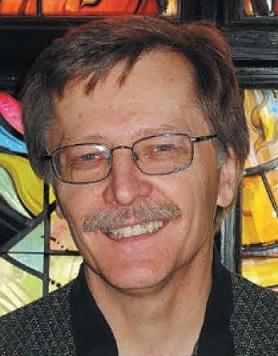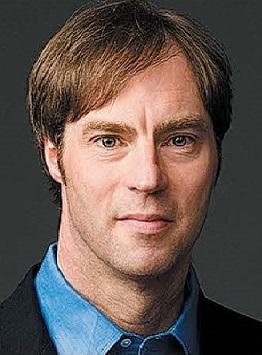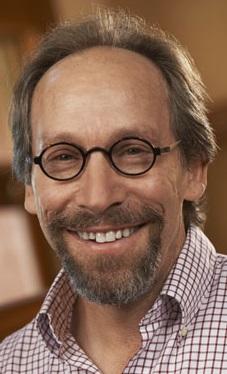
Denis O. Lamoureux
Denis O. Lamoureux is an assistant professor of science and religion at St. Joseph's College in the University of Alberta. He is dedicated to teaching and research on the relationship between scientific discovery and Christian faith. Lamoureux's academic specialty focuses on the modern origins controversy. He argues that the simple either/or approach to origins inhibits everyone from making informed choices. He asserts that if the limits of both conservative Christianity and evolutionary biology are respected, then their relationship is not only complementary, but also necessary. This view of origins is known as Evolutionary Creation. Concisely stated, it claims that the Father, Son, and Holy Spirit created the universe and life through an ordained and sustained evolutionary process.Lamoureux holds three earned doctoral degrees: dentistry, theology, and biology. He is a member of the executive council of the Canadian Scientific and Christian Affiliation, a Fellow of the American Scientific Affiliation, and is cited in the "Who's Who of Theology and Science." Lamoureux lectures throughout Canada and the United States in both Christian and secular academic institutions. In 2001 he received the University of Alberta Students' Union 'Recognizing Talented Teaching' Award.

Stephen C. Meyer
Stephen C. Meyer received his Ph.D. in the philosophy of science from the University of Cambridge. A former geophysicist and college professor, he now directs Discovery Institute’s Center for Science and Culture in Seattle. He has authored the New York Times best seller Darwin’s Doubt: The Explosive Origin of Animal Life and the Case for Intelligent Design (HarperOne, 2013) as well as Signature in the Cell: DNA and the Evidence for Intelligent Design (HarperOne, 2009), which was named a Book of the Year by the Times (of London) Literary Supplement in 2009. In his first book on intelligent design, Signature in the Cell: DNA and the Evidence for Intelligent Design (HarperOne, 2009) Meyer examined the mystery of the origin of the first life. With Darwin’s Doubt, he has expanded the scope of the case for intelligent design to the whole sweep of life’s history. Meyer’s research addresses the deepest mystery surrounding the origin of life and the origin of animal life: the origin of biological information necessary to produce it. Meyer graduated from Whitworth College in Spokane, Washington, in 1981 with a degree in physics and earth science. He later became a geophysicist with Atlantic Richfield Company (ARCO) in Dallas, Texas. From 1981 to 1985, he worked for ARCO in digital signal processing and seismic survey interpretation. In 1986 as a Rotary International Scholar, he began his training in the history and philosophy of science at Cambridge University, earning an M.Phil. in 1987 and a Ph.D. in 1991. His doctoral thesis was titled “Of Clues and Causes: A Methodological Interpretation of Origin-of-Life Research.” He returned to Whitworth in the fall of 1990 to teach philosophy and the philosophy of science. He left a tenured position as a professor at Whitworth in 2002 to direct the Center for Science and Culture full time, which he had helped found with John West in 1996. Prior to the publication of Signature in the Cell and Darwin’s Doubt, the writing for which Meyer was best known was an August 2004 review essay in the Smithsonian Institution-affiliated peer-reviewed biology journal Proceedings of the Biological Society of Washington. The article laid out the evidential case for intelligent design, presenting it as the best explanation for the origin of the biological information necessary to produce the new forms of animal life that arose abruptly during the Cambrian explosion. Because the article was the first peer-reviewed publication arguing for intelligent design in a technical journal, it proved extremely controversial. The journal’s editor, evolutionary biologist Richard Sternberg, was punished by his Smithsonian supervisors for allowing Meyer’s article into print. This led to the investigation of top Smithsonian personnel by the U.S. Office of Special Counsel. The controversy was widely covered in the media with articles or news stories appearing about it in The Wall Street Journal, Science, Nature, NPR, The O’Reilly Factor and the Washington Post. The federal investigation eventually concluded that Sternberg had been wrongly disciplined and intimidated. Meyer’s many other publications include contributions to, and the editing of, the peer-reviewed volume Darwinism, Design and Public Education (Michigan State University Press, 2004) and the innovative textbook Explore Evolution (Hill House Publishers, 2007). Meyer has also published editorials in national newspapers such as The Wall Street Journal, USA Today, The National Post (of Canada), The Daily Telegraph (of London) and The Los Angeles Times. He has appeared on national television and radio programs such as The Jim Lehrer News Hour, NBC Nightly News, ABC Nightly News, CBS Sunday Morning, Nightline, Fox News Live, Paula Zahn Now (CNN), Good Morning America and the Tavis Smiley Show on PBS. He has also been featured in two New York Times front-page stories and has garnered attention in other top national media. In 2008, he appeared with Ben Stein in the theatrical-released documentary Expelled: No Intelligence Allowed. He has also been featured prominently in the science documentaries Icons of Evolution, The Case for a Creator, Darwin’s Dilemma and Unlocking The Mystery of Life, the latter which was shown on PBS and which Meyer co-wrote with producer Lad Allen.

Lawrence M. Krauss
Lawrence M. Krauss is an internationally known theoretical physicist with wide research interests, including the interface between elementary particle physics and cosmology. He has investigated questions ranging from the nature of exploding stars to issues of the origin of all mass in the universe. He is currently Foundation Professor in the School of Earth and Space Exploration and Physics Department, and Inaugural Director of the Origins Project, a national center for research and outreach on origins issues, from the origins of the universe, to human origins, to the origins of the consciousness and culture.
He received his Ph.D. in Physics from the Massachusetts Institute of Technology (1982), then joined the Harvard Society of Fellows. In 1985 he joined the faculty of the departments of Physics and Astronomy at Yale University. In 1993 he moved to Case Western Reserve University as the Ambrose Swasey Professor and Chairman of the department of Physics. He moved to take his current position in 2008.
Krauss is the author of over 300 scientific publications, as well as numerous popular articles on physics and astronomy. He is the author of 10 popular books, including the international bestseller The Physics of Star Trek (1995) and most recently A Universe from Nothing (2012), which immediately became New York Times Bestseller. It argues that not only can our universe naturally arise from nothing, without supernatural effects, but that it probably did.
He is the recipient of numerous awards for his research and writing and is the only physicist to have received the major awards from all three U.S Physics Societies. His Julius Edgar Lilienfeld Prize from the American Physical Society (2001) summarizes his impact "For outstanding contributions to the understanding of the early universe, and extraordinary achievement in communicating the essence of physical science to the general public". In 2005 he was also awarded the Joseph P. Burton Forum Award from the American Physical Society for his work on issues of science and society. In 2012, he was awarded The National Science Board’s prestigious national Public Service Award for his many contributions to public education and understanding of science around the world.
Hailed, by Scientific American as a rare scientific Public Intellectual, he frequently contributes to newspapers, including the New York Times and Wall St. Journal and regularly appears on television and radio, and he has performed with the Cleveland Orchestra, and was a jury member at the Sundance Film Festival. Krauss is also the subject of a new full-length feature film, The Unbelievers, which follows Krauss and Richard Dawkins around the world as they discuss science and reason. In this regard he has dedicated his time, throughout his career, to issues of science and society and has helped spearhead national efforts to educate the public about science, ensure sound public policy, and defend science against attacks at a variety of levels. He serves as the chair of the Board of Sponsors of The Bulletin of the Atomic Scientists, and is on the Board of Directors of the Federation of American Scientists, and helped found ScienceDebate
Disclaimer: The opinions expressed by the speakers of the event are those of the speakers and do not necessarily reflect those of Wycliffe College and/or our partners/sponsors.





